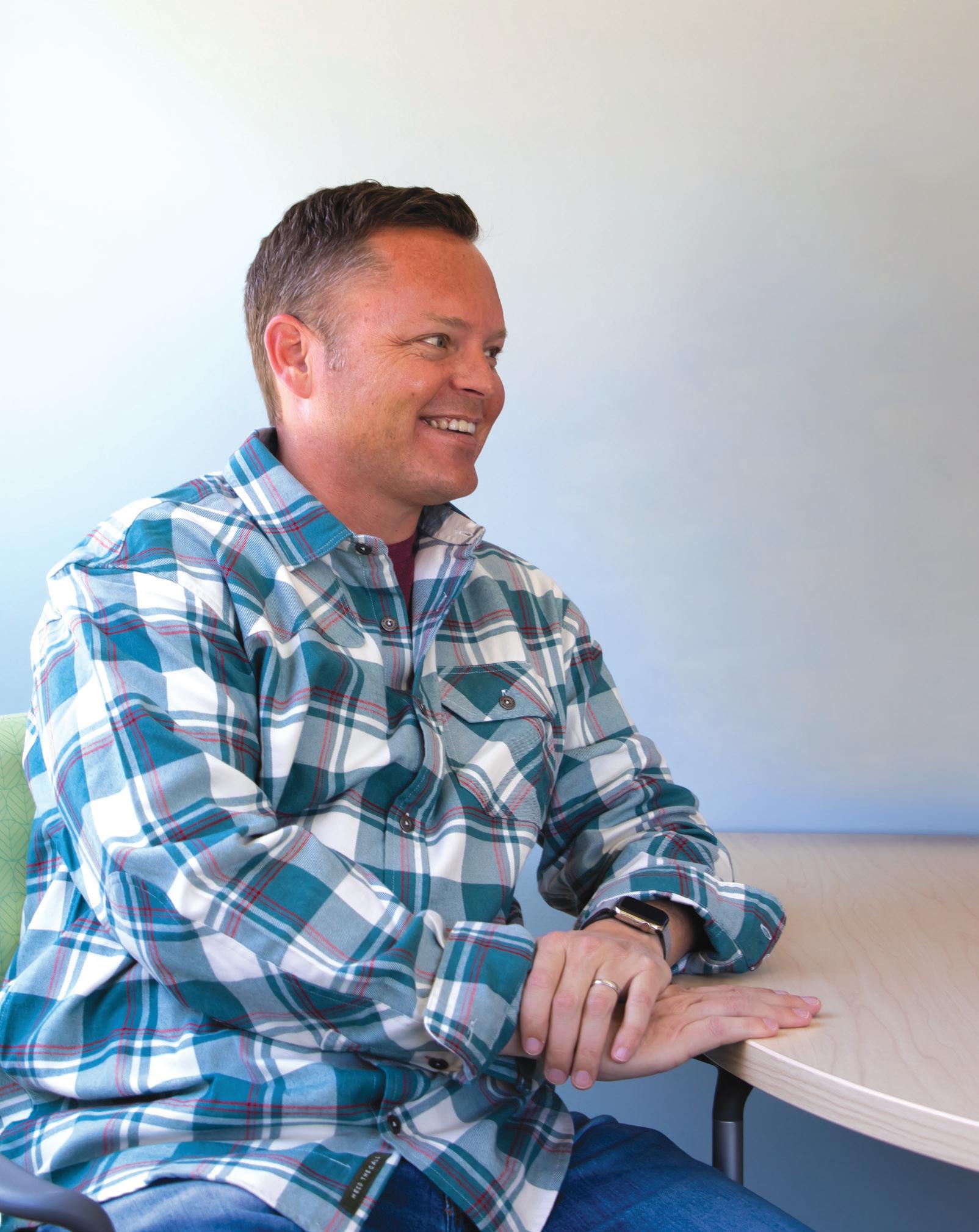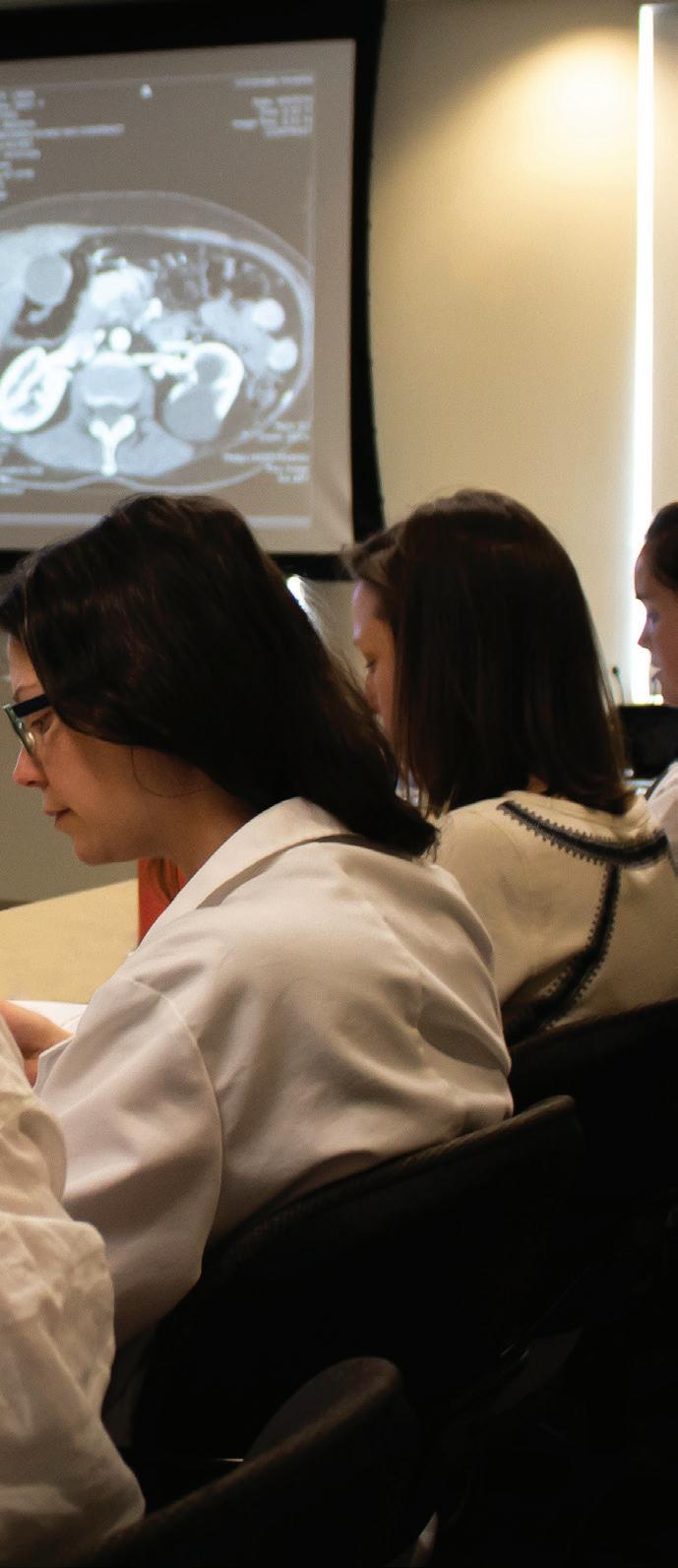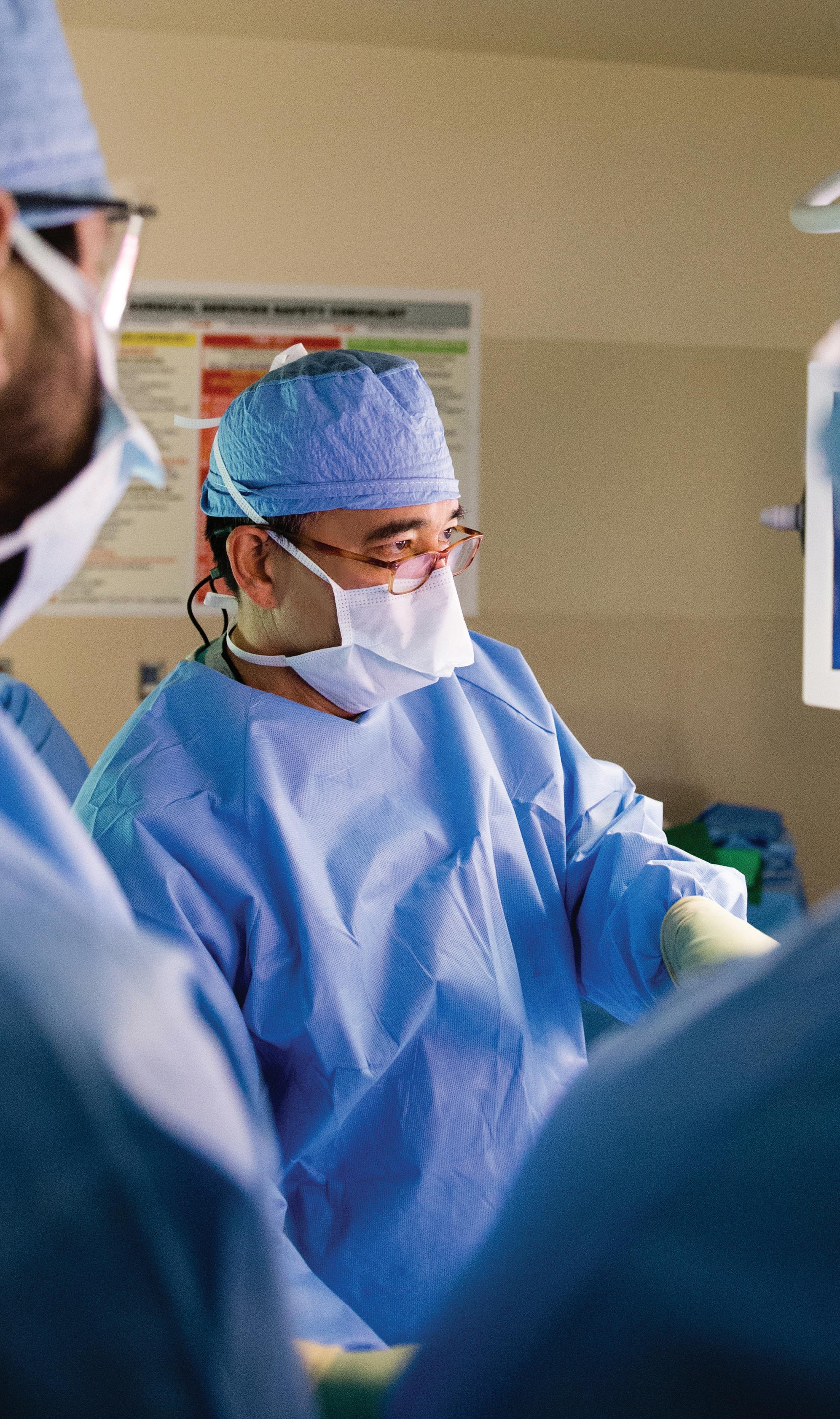
4 minute read
Multidisciplinary Clinic Revolutionizes Cancer Treatment
Multidisciplinary Clinic Revolutionizes Cancer Treatment
INNOVATION
Cancer. It’s the life-changing diagnosis that stirs a range of emotions and leads to countless questions. Where should I seek treatment? What options should I pursue? Do I have access to the best care possible? No matter the prognosis, a cancer diagnosis immediately changes your outlook and leads life down an unexpected path.
Dag Kittlaus, co-founder of Siri, initially arrived at UCHealth University of Colorado Hospital (UCH) for a simple checkup. “My wife talked me into getting a routine checkup. During that appointment, my doctors unexpectedly found a mass on my pancreas.” Kittlaus wanted effective treatment, and fast. “When you get this kind of news, you want to get treatment quickly. My doctors explained that I had likely had the tumor for several years, and I wanted it out,” he said.
Kittlaus scheduled his initial appointment through Executive Health at UCH, where he received a comprehensive checkup and full battery of tests. When the routine tests revealed abnormalities and a tumor on his pancreas, he was diagnosed with pancreatic neuroendocrine cancer. This is the same type of cancer that Steve Jobs, co-founder of Apple, battled. Pancreatic neuroendocrine tumors account for approximately 7% of all pancreatic tumors. They tend to grow slowly and cause few symptoms. If caught early, this type of cancer is treatable.
After receiving his diagnosis, Kittlaus sought specialized treatment at UCH. He underwent surgery to remove the tumor just two days after his initial scans. Richard
Schulick, MD, MBA, director of the CU Cancer Center and chair of the CU Department of Surgery, was his lead physician. “He’s a rock star,” Kittlaus said, “and I would recommend him to anyone.”
Following surgery, Kittlaus remained in the hospital for six days, and he spent two months recovering from surgery and returning to normal activities.

In 2007, Dag Kittlaus co-founded a speech recognition company that would revolutionize the mobile device industry with a product now widely known as Siri. Soon after, Kittlaus received a call from Apple co-founder Steve Jobs. His offer: Apple would buy Siri for $200 million and make it the virtual assistant in all Apple products. Kittlaus accepted and spent the next several years at Apple before departing to launch another digital startup, Viv Labs, which was recently acquired by Samsung.
Kittlaus is just one of many cancer patients benefitting from a comprehensive pancreatic multidisciplinary clinic. This clinic, created by Dr. Schulick in 2012, combines multiple areas of expertise and brings together a group of physicians and providers ranging from surgeons, medical oncologists, radiation oncologists, pathologists and gastroenterologists, to social workers, nutritionists and nurse practitioners to brainstorm effective treatment plans for each patient.


Every Tuesday, the pancreatic multidisciplinary team gathers to review new cases. The meeting combines the expertise of an entire team of health providers to review patient background information, scans and other tests, and decide on next steps. “This gives us multiple opinions on the best treatment course,” said Dr. Schulick. “I believe that the best care decisions are made in coordination with an interdisciplinary team of experts.” Patients then have the benefit of over 20 experts who meet and agree on the best possible course of action.
The CU Cancer Center is one of the first organizations to fully implement a multidisciplinary clinic to this degree, and Dr. Schulick hopes it will be used as an example. “I know our outcomes are better because all of our physicians work together, and we put the patients and their families at the center.” Multidisciplinary clinics already exist at the CU Cancer Center for other cancer types, and additional clinics are in planning stages. “My goal is to further expand this model, so patients diagnosed with any type of cancer are receiving life-saving team-based care,” he said.
For Kittlaus, this transformative care has given him a new outlook on life. He even has a new motto: “Don’t put anything off. I don’t save the expensive wine for a special occasion because none of us are promised tomorrow.”


Fighting Cancer as a Team
Faculty at the CU Cancer Center pioneered the multidisciplinary model of care in 2012 — bringing together a team of health care providers to chart a successful treatment course. Starting with the Pancreatic Cancer Multidisciplinary Clinic, the CU Cancer Center has elevated the standard of care and improved outcomes for patients in the Rocky Mountain region and beyond.
Richard Schulick, MD, MBA, a renowned cancer surgeon and accomplished university leader, was named director of the CU Cancer Center in 2018. He oversees a five-year $100 million cross-campus investment in the program, advancing a vision of reducing the suffering associated with cancer.
Dr. Schulick joined the CU School of Medicine in 2012 as the chair of the Department of Surgery, where he also holds the Aragón/Gonzalez-Guístí Endowed Chair in Surgery. Under his leadership, the Department of Surgery doubled in size, and now includes more than 250 faculty and 84 research staff. In 2017, the department handled more than 17,000 operating room cases and 86,365 patient visits.
In his role at the CU Cancer Center, Dr. Schulick is leading efforts to rapidly transform the cancer landscape. This work is made possible by joint efforts among the CU School of Medicine, UCH and philanthropic partners in the community.









